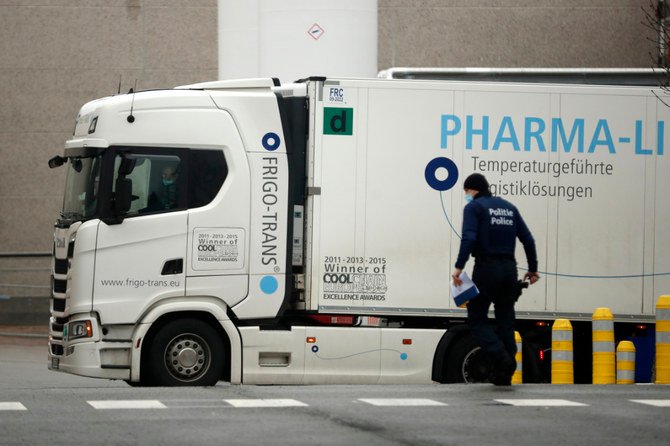
- ARAB NEWS
- 15 Jul 2025

For those who have lived through 2020, the rollout of coronavirus vaccines as that terrible year came to an end was a welcome glimpse of what seemed to be light at the end of a very dark tunnel — the product of unprecedented global cooperation by scientists, microbiologists, virologists, and pharmaceutical companies.
Then, however, two things happened: A new variant of the virus emerged, at the same time as many of the world’s citizens lowered their guard, causing another spike in infections and ultimately deaths.
The sad truth is that while the battle against coronavirus (COVID-19) may be nearing its end, it is far from over. To use a football analogy, the 90 minutes are up, but now we are in extra time, and the sudden death rule is in operation.
There is therefore a need for even greater caution. Greater awareness. Greater alertness. Not a single day passes without heartbreaking news from colleagues and friends, which should be enough to illustrate the importance of mass vaccination and protective measures.
What we are now seeing across the world — from developed societies such the UK or the EU, to the less developed, such as Lebanon — is evidence of how mistakes can be costly.
While the new vaccines were in the development and trial stages, the world had 10 months to prepare for the day when they could be used. Some countries either completely failed to grasp the gravity of the situation, or allowed the issue to be politicized.
As the US Second World War general Omar Bradley famously observed: “Amateurs talk strategy. Professionals talk logistics.” No sensible person questions the strategy of vaccination. The important question is, how do you get as much vaccine into as many arms as possible?
It is tragic that some countries have indulged in discrimination when it comes to vaccine administration.
Faisal J. Abbas
This is not a time for bickering and apportioning blame. We are all in the same boat. It is in this context that Saudi Arabia will supply the vaccine to Yemen and other less well-off countries. “We are negotiating with a lot of the vaccination companies to provide more vaccinations, particularly to low-income countries,” Saudi Finance Minister Mohammed Al-Jadaan told the virtual World Economic Forum in Davos.
This virus does not recognize national boundaries or man-made borders; it has no religion, so it doesn’t care what yours is. It is therefore tragic that some countries have indulged in discrimination when it comes to vaccine administration. There was no justification for Israel to brag about the success of its vaccination program while denying the vaccine to Palestinians, the crassest case of racism imaginable.
When it comes to defeating COVID-19, we are all in this fight together. For the vaccine to be effective, we must all be responsible. We must see that everyone is protected, not least our neighbors, regardless of how great the differences between us may be. Fighting one deadly biological virus is difficult enough, but hate and discrimination can be viruses too. Let us not create any more.
Twitter: @FaisalJAbbas.